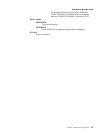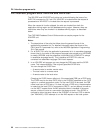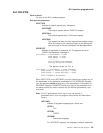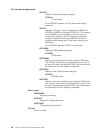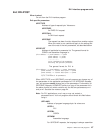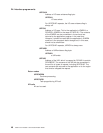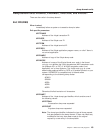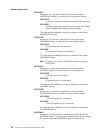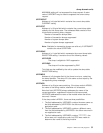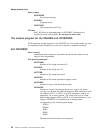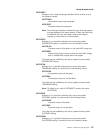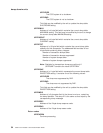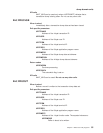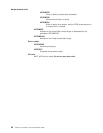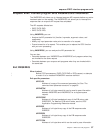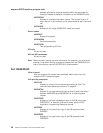MAXIMUM setting will not suppress this dump request. A return
code of UERCBYP may be used to suppress the current dump
request.
UEPDXDCNT
Address of a 4-byte field which contains the current dump table
CURRENT setting.
UEPXDTST
Address of a 16-byte field which contains the current dump table
statistics for this dump code. The addressed field consists of four
4-byte fields containing binary integers:
Number of transaction dumps taken
Number of transaction dumps suppressed
Number of system dumps taken
Number of system dumps suppressed
Note: Statistics for transaction dumps are valid only if UEPDUMPT
contains the value UEPDTRAN.
UEPXDDAE
Address of a 1-byte field which represents the current dump table
DAEOPTION setting. It contains one of the following values:
UEPXDYES
The dump is eligible for DAE suppression.
UEPXDNO
The dump will not be suppressed by DAE.
This field may be modified by the exit to update the dump table
DAEOPTION setting.
UEPDMPID
Address of a 9-character field in the format xxxx/xxxx, containing
the dump identifier. The dump ID is the same as that output by the
corresponding dump message.
UEPFMOD
Address of an 8-byte area containing, if the dump code is AP0001,
the name of the failing module; otherwise null characters.
Note that field UEPPROG always addresses the name of the
current
application, regardless of where the failure occurred.
UEPFMOD addresses the name of the module where the failure
occurred, if known.
If the dump code is AP0001, there are three possibilities:
1. The field addressed by UEPFMOD contains the same name as
the field addressed by UEPPROG—the failure occured in
application code.
2. The field addressed by UEPFMOD contains a different name
from the field addressed by UEPPROG—the failure occurred in
non-application code.
3. The field addressed by UEPFMOD contains '????????'—the
failure was not in application code, but CICS was unable to
determine the name of the failing module.
dump domain exits
Chapter 1. Global user exit programs 51



